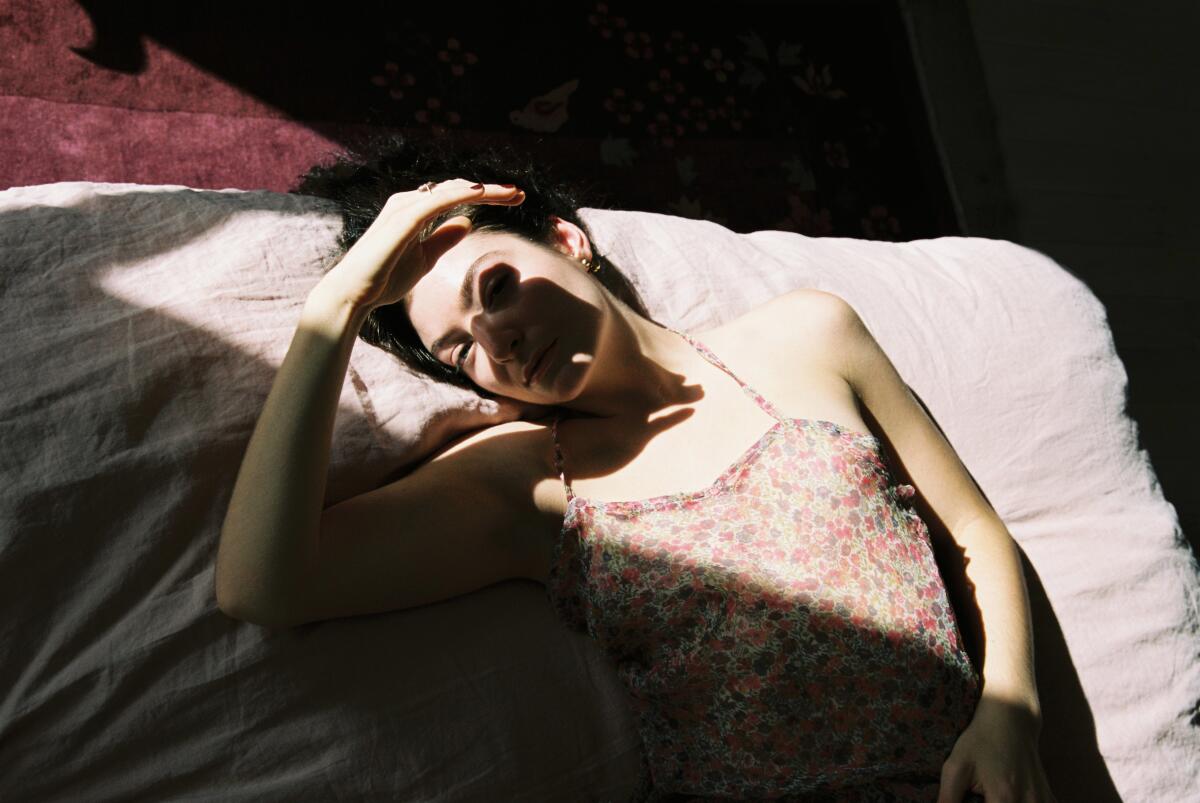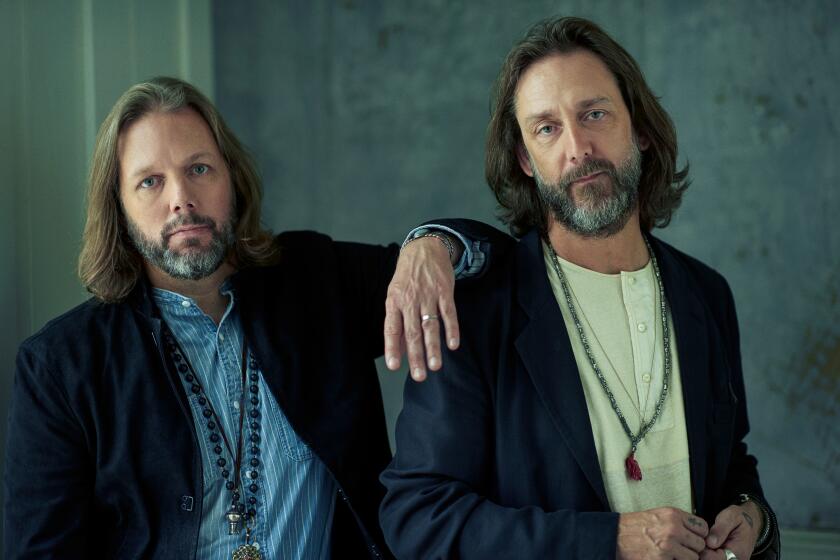Review: Lorde’s spare musings on the burden of fame don’t sound like hits. That’ll suit her just fine

Lorde’s songwriting stands up to digital fact-checking.
When the 24-year-old pop singer from New Zealand sings on her new album of having “an arm in a cast at the museum gala,” it takes only a few clicks to find a photo (dozens, actually) of her plaster-accented look at the Met Gala in 2016. Ditto her memory of the time “in Hollywood when Carole called my name” — Carole King, that is, who presented Lorde with a Grammy Award for song of the year at Staples Center in 2014.
As a child of the internet, Lorde knows that her life over the past decade — since her smash “Royals” made her a teenage superstar despite (or perhaps because of) the song’s suspicions about celebrity — has been documented in obsessive detail; she also understands that fans crave the feeling of being let behind the curtain of what they already know.
But that doesn’t mean she likes it.

“If you’re looking for a savior / Well, that’s not me,” Lorde declares just minutes into “Solar Power,” her third LP. “You need someone to take your pain for you? / Well, that’s not me.” Even before these pronouncements, the first thing she tells us in the album’s opening track, “The Path,” is that she was “born in the year of OxyContin” — certainly one way to describe 1996 (when the notoriously addictive painkiller was introduced) that leaves little doubt as to her thoughts on the dangers of fame-as-religion.
Elsewhere on this curiously low-key album, Lorde deplores getting on airplanes all the time and admits to “having nightmares from the camera flash”; on “Dominoes” she sounds utterly exhausted by having dated an unnamed guy who went on to do “yoga with Uma Thurman’s mother.” (Your Googling awaits.)
After years apart, the Black Crowes perform at the Forum on Thursday, part of a tour celebrating the 30th anniversary of the group’s breakthrough debut.
Doesn’t anyone want to be a pop star anymore? “Solar Power” is just the latest in a series of high-profile releases about seeking an escape from online ubiquity, after Lana Del Rey’s “Chemtrails Over the Country Club” and Billie Eilish’s “Happier Than Ever”; even 2021’s breakout debut, “Sour” by Olivia Rodrigo, starts with a song in which Rodrigo threatens to quit the job she just got and start a new life, far from the soul-crushing experience that is being a young woman reading about herself on social media.
Lorde makes similar promises on “Solar Power,” which she recorded primarily with producer Jack Antonoff, pop’s premier facilitator of VIP ambivalence: “Goodbye to all the bottles, all the models / Bye to the kids in the lines for the new Supreme,” she sings on “California,” while “Stoned at the Nail Salon” counsels listeners to “spend all the evenings you can with the people who raised you.”

In “The Path,” Lorde brags that she “won’t take the call if it’s the label or the radio”; in the title track she exults in having thrown her “cellular device in the water” so that nobody at all can reach her.
What distinguishes “Solar Power” from those other records — another is Clairo’s Antonoff-produced “Sling,” with songs about encountering creeps in the record biz — is that Lorde truly sounds like she’s OK with not having hits. These are weird, spare, twisty-turny psych-folk tunes, many of them without the propulsive beats that used to drive Lorde’s music; most of the time, she’s simply layering her fluttering, slightly raspy vocals over Antonoff’s noodly electric guitar in a way that recalls Nico’s 1967 cult classic “Chelsea Girl,” of all things.
And though the results are uniformly gorgeous, not-hits are indeed what Lorde has so far reaped: Ahead of the album’s release Thursday night, none of its advance singles were on Billboard’s Hot 100 or the Spotify U.S. Top 50 — a startling turnabout for an artist who spent nine weeks at No. 1 with “Royals.”
Lorde doesn’t use all of “Solar Power” to chew over her disinterest in fame. “Fallen Fruit” addresses climate change, criticizing the singer’s parents’ generation for not working to solve a problem that may now be too late to fix. And “The Man with the Axe” tenderly recounts a relationship with someone who “felled me clean as a pine.” (There’s a vivid metaphor to show for all the wandering in nature Lorde says she did during COVID quarantine.)
In the twinkling “Mood Ring” she satirizes the modern wellness industry — “You can burn sage, and I’ll cleanse the crystals,” she coos — with the sharp sense of humor that keeps the rest of “Solar Power” from feeling like a privileged person’s lament. Lorde closes with “Oceanic Feeling,” in which she turns her focus from the disappointments of getting what she thought she wanted to the comforting thrill of the yet-to-be-known.
“In the future, if I have a daughter / Will she have my waist or my widow’s peak?” she sings over a gently trippy gospel-soul groove, “My dreamer’s disposition or my wicked streak?” That nobody can pull up any pictures of the hypothetical child clearly delights her.
More to Read
The biggest entertainment stories
Get our big stories about Hollywood, film, television, music, arts, culture and more right in your inbox as soon as they publish.
You may occasionally receive promotional content from the Los Angeles Times.












